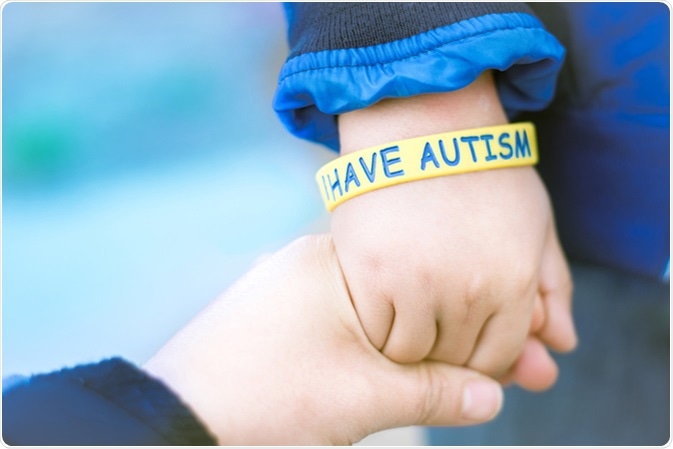Image Credit: Zahraa Saleh / Shutterstock
What is Autism Spectrum Disorder
ASD is a developmental disorder that affects behavior and communication. Even though autism can be diagnosed at any age, the symptoms usually appear within infancy.
People living with autism may interact and communicate in ways that are different from other individuals. As a spectrum disorder, there are a range of symptoms and varying levels of functional disabilities that can be seen in those with ASD. Some individuals with the disorder may be able to sufficiently manage their daily life, whilst others may need further support.
Autism spectrum disorder (ASD) is a range of neurodevelopmental disorders which affect an individual’s ability to communicate and socially interact with others. It is estimated that 1 in 59 children in America will be diagnosed with the disorder each year. There are several hypotheses for the symptoms experienced by those with autism, with researchers suggesting that social deficits are correlated to dysfunction within the reward pathway.

According to the Centers for Disease Control and Prevention (CDC), an estimated 1 out of 59 children have autism spectrum disorder. It’s about four times more common in boys than in girls.
Even during infancy, children with autism may not hit the same developmental milestones compared to those without the disorder. They may become too focused on particular objects, not engage with typical babbling with their parents, and rarely make eye contact. In some cases, children may develop normally until their second or third birthday, then subsequently begin to withdraw and become indifferent to others.
Generally, people with ASD have trouble with emotional, social, and communication skills. They may have different ways of reacting to things and learning. They may also engage in repetitive and characteristic behaviors, such as flapping their arms, twirling, or rocking from side to side. Aside from that, they may have emotional outbursts, particularly when placed in a new or overly stimulating environment.
The Body’s Reward System
The term reward system refers to a group of neural structures that are activated by reinforcing or rewarding stimuli. The brain reward system (BRA) is responsible for incentive salience, which is the craving for a reward, positive emotions like joy and euphoria, and associative learning.
When the brain is exposed to a rewarding stimulus, it responds by releasing dopamine, a neurotransmitter. In fact, the mesolimbic dopamine pathway plays a primary role in the reward system, as this circuit detects a rewarding stimulus. During normal conditions, it’s the circuit that controls a person’s response to natural rewards, including sex, social interactions, and food.
The structures linked to the brain’s reward system can be found along the major dopamine pathways. The mesolimbic dopamine pathway connects the nucleus accumbens, which is the part of the brain responsible for motivation and reward, to the ventral tegmental area (VTA).
The Link Between Autism and the Reward System
Research has found that there’s an imbalance in the brain’s reward system’s responsiveness to non-social and social stimuli. According to a study in 2010, the brain’s system for detecting pleasure and reward produces unusual activation patterns in people with ASD. It also found that an altered structure of reward circuits can be seen in those with autism. Hence, these findings strengthen the social motivation hypothesis, which suggests that people with ASD find social interaction less rewarding than other people do, making them less interested in socializing with others. Among infants and children, when they find socializing with others unpleasurable, they might not engage with other people, even their primary caregivers. Thus, the may only get a few chances to develop their communication and social skills.
Though the core symptoms of autism have not been traditionally linked to the impaired reward-based processes, the brain’s reward system plays a pivotal role in guiding non-social and social learning and behavior during the developmental years. Studies have shown abnormal neurobiological and behavioral responses to rewards in people with autism. They may respond differently, making regular rewarding stimuli for others, unpleasurable for them.
In another study, researchers found that deficits in the reward system of the brain are associated with social deficits in children with autism. Children with autism may have structural or functional abnormalities in the brain system that normally makes social interaction feel rewarding. These findings may pave the way for better treatments and therapies for children and adults with autism.
Further Reading
Last Updated: Sep 28, 2018